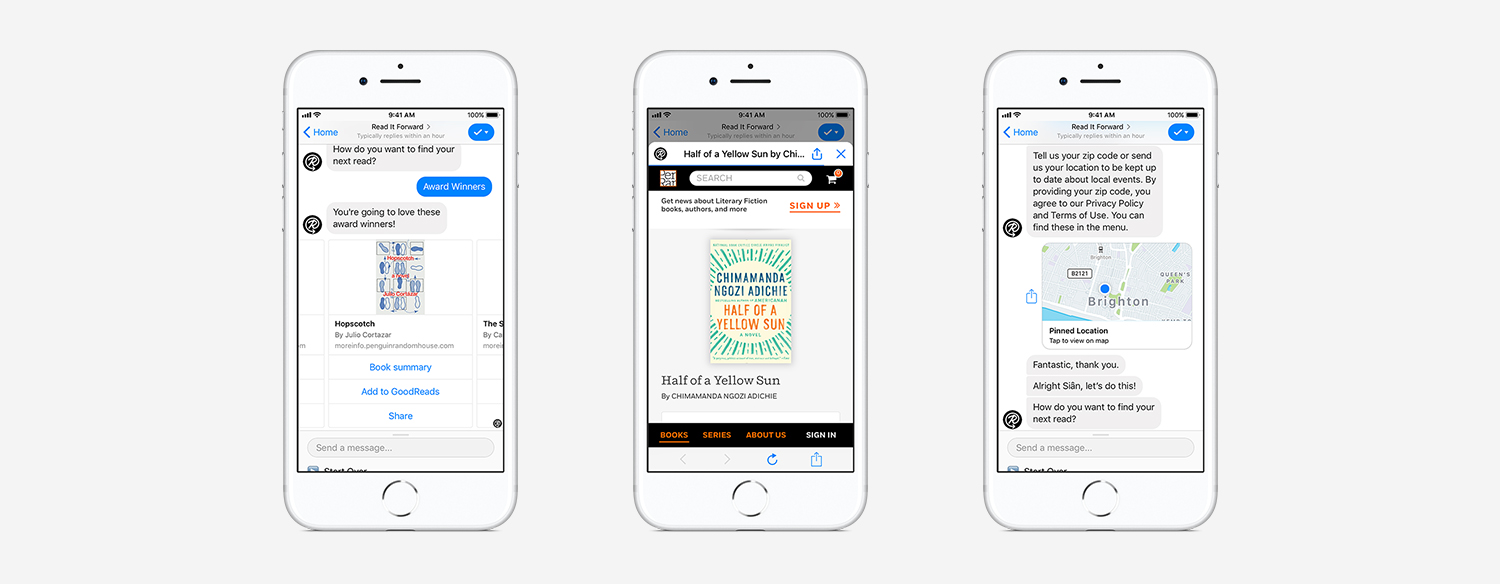
TL; DR – We love books. We love UX design. We love machine learning. Using a powerful database of books and authors, a simple conversational channel, and bot analytics, we collaborated with Penguin Random House to launch a delightful book recommender bot. Have a play and see what you think.
What is the best way to find your next great book to read?
Say you really enjoyed a Scandinavian thriller and wanted a quick follow-up in the same style. You could go to a book-store and chat with that friendly sales clerk, or ask your book-fiend work colleague, or flick through a newspaper’s review section. Perhaps you browse that online book-seller or do a good old web search. Perhaps there are too many choices, too many options, and your time is precious. And finally, say you are somebody who uses Facebook Messenger for quick communication with the people you trust…
This is where a friendly book-recommending chatbot fits the bill. Quicker to find and use than an app, and able to give you great suggestions after a quick Q&A, the Read It Forward chatbot on Facebook Messenger uses a mix of conversational input, cards and buttons to guide you to your next great read. Our design team picks up the thread in this blog post.
Behind the scenes is a custom recommender engine that uses a world-first library of books and authors built by Penguin Random House. We worked with the publisher to surface responsive APIs so that the Facebook Messenger bot could pass in user input and get a short-list of suggestions. The APIs live on AWS, which we worked with the publisher to configure for scalability, responsiveness and reliability.

Building a good chatbot is not enough. You have to learn how to improve it, what users love and where they need change. This is where analytics come in. Using a combination of Facebook Messenger’s own platform analytics and Chatbase from Google, we were able to construct funnels to understand how users engage, and more importantly, where they drop off. We’ll use the analytics to tweak the overall UX, always looking at the simplest way to give the best results.
Finally, how good is the recommender? It is critical for a recommendation engine to use feedback to improve itself. And so we ask returning users to rate the last book the bot suggested. Over time, the recommender engine that feeds the bot will learn what works for you, today.
You can try the bot here. Have fun!
Photo by Becca Tapert on Unsplash





